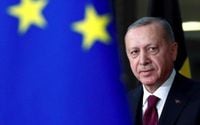Turkey has issued a stern warning over Cyprus’ recent acquisition of Israeli air defense systems, raising the specter of renewed tensions on the divided Mediterranean island. On September 18, 2025, Turkish defense ministry officials voiced their unease regarding reports that Cyprus had received the advanced Barak MX integrated air defense system from Israel—an upgrade that many in Ankara see as a direct threat to regional stability and Turkish national security, according to the Associated Press and Anadolu Agency.
The Barak MX, developed by Israel Aerospace Industries (IAI), is a formidable ground-based system. Capable of intercepting missiles, drones, and aircraft from distances up to 93 miles (150 kilometers), its arrival marks a significant leap in Cyprus’ defensive capabilities. Until now, the island’s arsenal consisted mainly of aging Soviet-era weapons, such as the BUK M1-2 missile system. The new system, officials say, could tip the delicate military balance that has defined the island since its division in 1974.
Turkey’s defense ministry did not mince words. "We would like to once again remind that ongoing armament efforts and activities that may undermine peace and stability on the island could have dangerous consequences," defense ministry sources told Anadolu Agency. The ministry further emphasized, "Every attempt aimed at disturbing the balance on the island is being closely monitored, and all necessary measures are being taken for the security and peace of the Turkish Republic of Northern Cyprus."
This is not the first time Cyprus’ attempts to modernize its defenses have rattled Ankara. Back in 1997, plans to deploy Russian-made S-300 air defense missiles sparked a tense standoff, with Turkey threatening military action. The crisis was averted only after Cyprus agreed to transfer the missiles to Greece, but the memory of that near-flashpoint still lingers in diplomatic circles.
The Mediterranean island has been split along ethnic lines for more than five decades. In 1974, Turkey invaded Cyprus following a coup that aimed to unite the island with Greece. Today, only Turkey recognizes the self-declared Turkish Republic of Northern Cyprus (TRNC) in the island’s north, where more than 35,000 Turkish troops are stationed. The rest of the world recognizes the government in the south, led by the Greek Cypriot administration.
Cyprus’ defense minister, Vasilis Palmas, has made no secret of his government’s intentions. In an interview with the Associated Press last year, he argued that strengthening the country’s defense was vital for an island so close to the volatile Middle East. "Bolstering the country’s defense capacity is critical for the island nation, which is located close to the war-torn Middle East," Palmas said. The arrival of the Barak MX system, he added, is simply the latest step in a long-term plan to ensure the island’s security.
But for Ankara, the move is fraught with risk. Turkish officials insist that Cyprus’ armament efforts could threaten peace and stability, not just on the island, but across the wider Eastern Mediterranean. As one Turkish defense official put it, "Cyprus’ ongoing armament efforts would threaten peace and stability on the island and may lead to dangerous consequences." The sentiment was echoed by Rear Admiral Zeki Akturk, press and public relations advisor to Turkey’s Defense Ministry, during a weekly briefing. "We want to remind once again that the Greek Cypriot Administration's ongoing armament efforts and activities that will undermine peace and stability on the island may have dangerous consequences," Akturk said.
Turkey’s response has been swift and unequivocal. Ministry officials have declared that all necessary steps are being taken to guarantee the security of Turkish Cypriots in the north. "Türkiye, as yesterday, today is also alongside and supporter of the TRNC," officials stated. "The Turkish Cypriot people are also under Türkiye’s guarantee." This language underscores Ankara’s longstanding role as the self-appointed guarantor power for Turkish Cypriots, a status that has often put it at odds with both Nicosia and international mediators.
The timing of Cyprus’ procurement has not gone unnoticed. Regional tensions are already running high, particularly given Turkey’s sharp criticism of Israel’s actions in Gaza. Akturk did not shy away from linking the two issues, condemning what he described as Israeli "systematic oppression and state terrorism" in Gaza. Some Turkish officials have even suggested that Cyprus’ growing defense ties with Israel could further destabilize an already volatile Eastern Mediterranean. "Such partnerships could contribute to further destabilization in an already volatile Eastern Mediterranean region," ministry officials warned, as reported by Turkish media.
From Nicosia’s perspective, the move is defensive, not provocative. The government has repeatedly argued that its military modernization is aimed solely at protecting its citizens from external threats. Yet, critics in Ankara see it differently. They argue that the delivery of a second Barak MX system earlier this week represents a "direct threat" to Turkish national security. The Turkish government has made it clear that it will not stand by if it perceives a shift in the island’s military equilibrium.
To add another layer of complexity, Ankara has also been forced to address speculation regarding its own arsenal. On the same day that it criticized Cyprus, Turkey rejected reports that Russia had requested the return of its S-400 missile defense systems, which remain a point of contention between Turkey and its NATO allies. Turkish officials insisted there was "no change" in policy and that the S-400s remain firmly in Turkey’s possession.
The arms deal between Cyprus and Israel has also raised eyebrows among international observers. Some see it as part of a broader realignment in the region, especially as traditional alliances are tested by new conflicts and shifting priorities. For Turkey, already at loggerheads with Israel over Gaza, the optics of its neighbor deepening ties with Jerusalem are especially worrisome.
Meanwhile, the people of Cyprus—Greek and Turkish Cypriots alike—are left to wonder what comes next. The island has long been a flashpoint, where local disputes can quickly escalate into international crises. With both sides now digging in and modernizing their arsenals, the prospect of renewed tension is very real.
As the situation develops, all eyes will be on Ankara and Nicosia. Will cooler heads prevail, or is the Eastern Mediterranean headed for another dangerous standoff? For now, both sides are watching, waiting, and—if the rhetoric is any guide—preparing for whatever comes next.
For a region with a history of sudden flare-ups and long-standing mistrust, the latest developments serve as a stark reminder: the balance of power on Cyprus remains as fragile as ever, and the stakes could hardly be higher.





